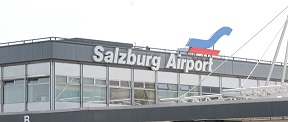Magnetic separation and sensor sorting technology specialist Steinert claims that it will be providing ‘answers to China’s import ban’ at IFAT from 14-18 May.
Plant operators can now sort black plastics with the Steinert UniSort Black system while the company’s UniSort Film efficiently separates 2D materials from the material flow. ‘Both are issues that can make a real difference to recycling rates,’ Steinert insists.
The UniSort Black and UniSort Film NIR sorting systems help meet the now more demanding German Packaging Ordinance, the stricter German Commercial Waste Ordinance and also ‘the purity rate of Chinese waste’, it is stressed.
In addition at IFAT, Steinert will unveil the EddyC MOVE – a mobile non-ferrous metal separator which separates ferrous and non-ferrous metals ‘in one step’ so as to help meet the requirements of the Commercial Waste Ordinance. The range of material applications includes wood waste, demolition waste, refuse-derived fuel, commercial and mixed construction waste.
‘In times when purity and rising recycling rates are the key to success, we are well positioned with both our process expertise and the necessary technology,’ comments Steinert’s ceo Peter Funke. ‘We offer operators of disposal facilities the full range of magnetic separation, non-ferrous metal separation and state-of-the-art near-infrared sorting systems.’
Steinert focuses on two factors with respect to metal recovery: purity and process flexibility. For example, the SteinertKSS multi-sensor machine enables sorting facilities to separate metals homogeneously. It consists of a platform which deploys various sensors such as 3D, colour and induction recognition.
The system can also be fitted with a fourth sensor (near-infrared, X-ray transmission or X-ray fluorescence). The X-ray sorter ensures that heavy metals are separated from a lightweight metal fraction, including aluminium.
 Amir Seifizadeh Personal Website
Amir Seifizadeh Personal Website

